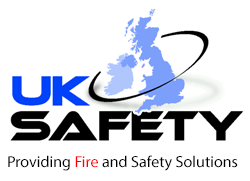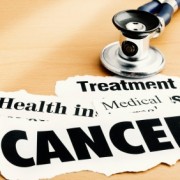Early intervention at work can improve cancer survival
By Professor Gordon Wishart is a consultant breast and endocrine surgeon
Earlier this year, Check4Cancer delivered presentations on the different types of cancer to Zurich’s employees based at different locations across the UK. Typically, awareness-raising campaigns focus on one specific cancer, sometimes focusing on gender bias, age or working conditions of staff.
Zurich took a different approach covering as many types of cancer as possible, opting to include bowel, breast, cervical, lung, prostate and skin cancers as part of their employee awareness programme. Initially, Zurich focused on helping employees to spot the signs of skin, breast and prostate cancer but then extended the programme to include some bowel, cervical and lung presentations too in light of positive feedback on the initial presentations.
Skin cancer, along with breast, prostate cancer, bowel, cervical and lung cancer are the six most common cancers, affecting both men and women, young and old – and, taken together, account for around 85 per cent of all cancers in the UK.
Typically, Check4Cancer implements its awareness campaigns via a range of media tailored to the client’s need, including presentations, info stands, booklets and informational websites set up specifically for the purpose. In addition to clear, basic information, the websites can feature illustrative videos, FAQs, and interactive activities where participants can share experiences. But also, crucially, they include online questionnaires providing measurable outcomes of the campaigns.
While work way is underway to measure the specific health outcomes the online questionnaires provided feedback from Zurich employees that the initial presentations were valued.
One hundred per cent of attendees agreed that presentations covered everything that had been expected, of which 76 per cent strongly agreed. One hundred per cent of participants agreed that presentations were a good use of time and 88 per cent strongly agreed; 100 per cent of attendees agreed that the presentations helped them better understand the particular cancer and 85 per cent strongly agreed; 89 per cent would attend more presentations on different cancers; 10 per cent would consider it; and only 1 per cent would not attend future sessions. While many of us may still be reluctant to talk about cancer, Zurich’s experience shows a strong desire on the part of employees for more information and support.
In fact, a recent survey among HR professionals revealed that 95 per cent of HR professionals surveyed were in favour of universal cancer checks provided by employers, with annual checking for all staff, while 63 per cent actively plan to introduce cancer awareness programmes and/or early detection programmes in their organisation.
Great potential exists for business to challenge the threat posed by cancer and it does not have to involve radical action. It may be as simple as providing the right information in the right way. What people do not know, they cannot react to. By providing awareness of cancer, we hope that people may become empowered to self-diagnose cancer and thereby save lives.
Professor Gordon Wishart is a consultant breast and endocrine surgeon, former director of the Cambridge Breast Unit, Cambridge University Hospital NHS Foundation Trust and Visiting Professor of Cancer Surgery at Anglia Ruskin University, Cambridge. He now works as an independent practitioner in Cambridge, and is medical director at Check4Cancer (www.check4cancer.com)
SHP



